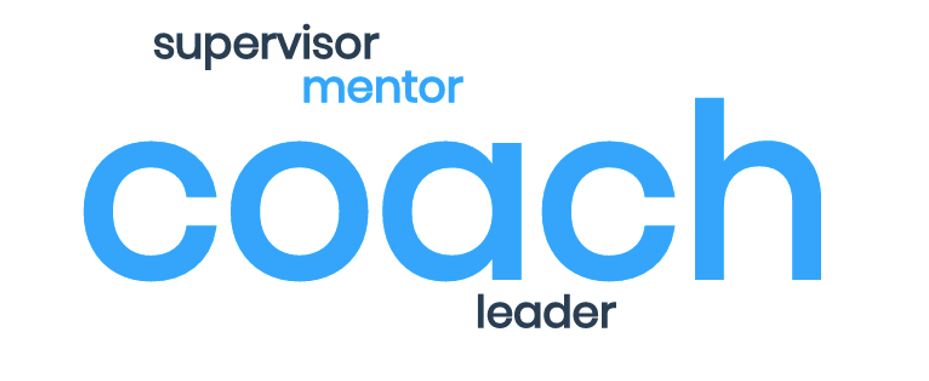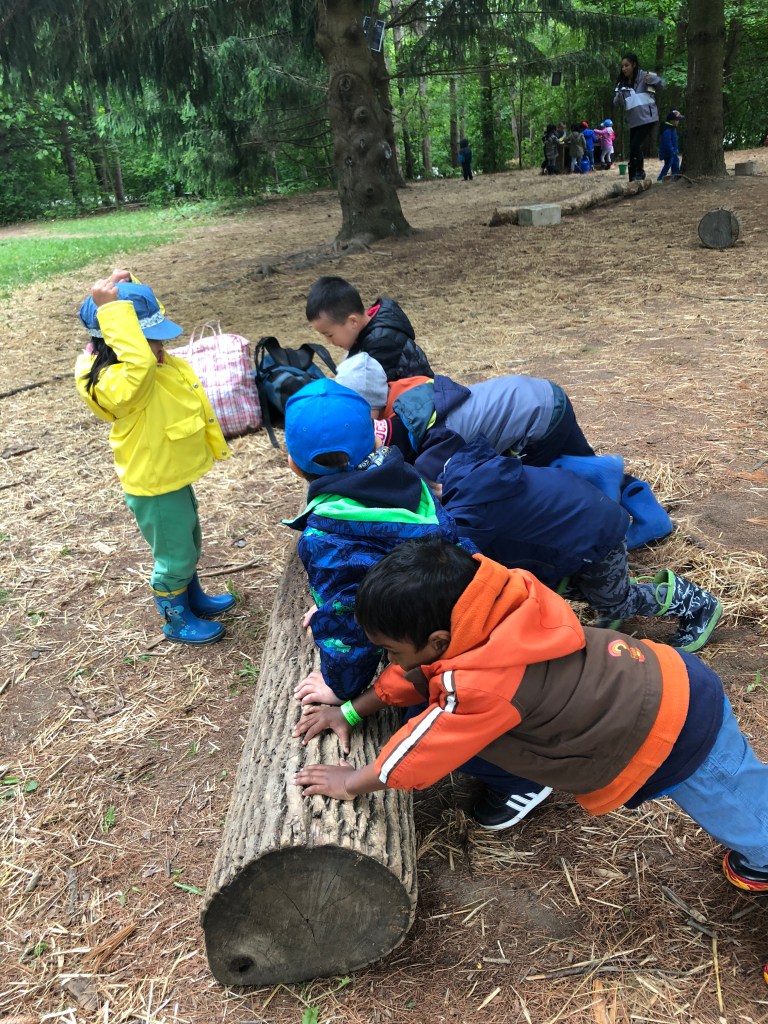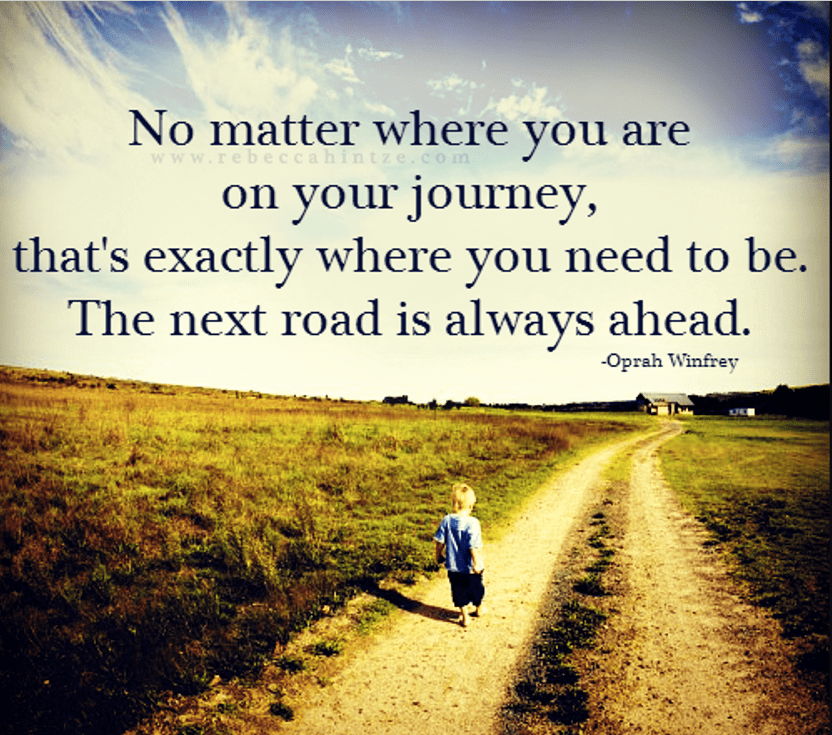By: Diane Kashin, Ed.D, RECE.
How do you see yourself? Are you a mentor? Are you a leader? Are you a supervisor? You have probably thought about these roles and what they mean, but have you considered yourself as a coach? In this blog post, I will be exploring the coaching role in early childhood education (ECE). I have thought of myself as a mentor and a leader. I have not previously considered myself as a coach, but I now see the benefits of examining coaching from the perspective of early learning. Coaching in ECE is evolving. There is growing evidence that unlike other professional development/learning approaches, it has the potential to lead to very positive outcomes (O’Keefe, 2014). According to O’Keefe (2014) ECEs often, engage in professional development experiences by themselves, and these are usually one-time, lecture-style trainings. According to the New York Early Childhood Professional Development Institute this is not enough time for learning to be internalized. When an educator who works in a team, attends a training alone, they may struggle to implement new strategies without the collaborative support of their colleagues. While webinars and online trainings have become increasingly popular, especially in this past year, these modalities can be impersonal and can fail to engage educators “who have questions about specific students and challenges unique to their own practices” (Frazier, 2018, p. 3). Coaching, when implemented well, looks very different: It lasts longer, and it is grounded in an educators’ practice (O’Keefe, 2014).

Coaching is an individualized approach to professional learning “where educators work towards specific teaching goals with support and feedback from a designated colleague or expert”. Mentoring is usually “a peer-to-peer relationship between a more-experienced and less-experienced educator”. Supervising is “between an educator and the person who has direct managerial responsibility over them” (O’Keefe, 2014, p. 4). These are important roles but are they effective when the desired outcome is professional learning? In my Ontario context, leaders are often referred to as “pedagogical leaders”. Pedagogical leadership is guiding the study of the teaching and learning process alongside educators. Pedagogical leaders can be anyone with a strong knowledge of theory and practice, experience, and a commitment to ongoing learning. Watch this video to learn more about pedagogical leaders.
Pedagogical leaders can increase their effectiveness if they see their role from a coaching perspective. “Coaching is designed to build capacity for specific professional dispositions, skills, and behaviors and is focused on goal-setting and achievement for an individual or group”. Above all, “it is a relationship-based process” led by someone who “serves in a different professional role than the recipient(s)” (National Association for the Education of Young Children National Association of Child Care Resource and Referral Agencies, 2011).
Early childhood educators understand the importance of relationships and trust. How does a coach build trust? Start from a position of love and kindness. A legendary football coach once said that …
Coaching is a profession of love. You can’t coach people unless you love them ~ Eddie Robinson
Sometimes love can be tough. It is not always easy to address practices that seem outdated or ineffective. Kindness is a combination of acceptance and compassion. There are so many challenges in the early learning profession, and these have intensified almost beyond measure with the pandemic. Accept those who you coach and offer them compassion. In the past, I approached professional learning with judgement. Now, I see those whom I support from a position of strength and capacity. I believe in their competence to go forward on their journey. Now rather than a judge, I model the role of the coach.
The coach models. They understand that they are engaged in a parallel process. Their strengths-based, reflective interactions serve as a model for the interactions that the educator has with colleagues, families, and children (Jablon, 2016). The coach acknowledges the experience and skills that the educator brings to their work, just as the educator should acknowledge the experiences of children and families. When “the coach challenges the educator to experiment with new practices” they do so while maintaining trust and by being “knowledgeable, dependable, and optimistic” (Frazier, 2018, p. 4). The pedagogical leader as coach demonstrates the same dispositions that they want to cultivate in others. Dispositions are ways in which a person is inclined to behave. Professional dispositions are the tendencies to think and act in certain ways that are valued by the field (Swim & Merz, 2016). The following professional dispositions are recommended by the New York Early Childhood Professional Development Institute in this policy brief.
- The disposition to be strengths-based: The coach identifies strengths in the educator’s practice. Moments of effectiveness are reflected back to the educator. The educator who is confident that the coach will respond to them in a strengths-based way is more likely to experiment with new practices.
- The disposition to be self-reflective: The early childhood coach develops the educator’s disposition to be reflective by taking time to ask open-ended questions and listen.
- The disposition to be self-directed: Coaching develops this disposition because it asks educators to determine what goals are most relevant for them. The educator who sets their own goals is likely to be ready to make the change they have envisioned.
To explore your role as a coach, start by building a culture of collaboration based on trusted relationships. Set goals for practice. This will lead to pedagogical knowledge and professional dialogue, and end in effective and meaningful programming for children. That is my theory. Will this work for you? Can you see opportunities in your practice to coach? I look forward to your feedback and input. What do you think?



Thank you for this blog. I attend a lot of PD with the PRC at Conestoga college in Kitchener where there are always familiar faces and we always have continuing rich conversations. I love sharing my knowledge and my passion with my fellow ECEs and really anyone who will listen. The idea of coaching is very intriguing to me. I would love to know more about what you are working on.
In Jan or Feb I attended “You got this” at the PRC…and you inspired me so much. I felt such a connection to you and your passion. I follow your blog and I have been a regular participant of the Land As Teacher events! So blessed that I saw you last winter and have been so inspired ever since. Changed my goals, awakened and revived my passions.
Glad and thankful for your knowledge and your passion!!!!
LikeLiked by 2 people
Thank you so much for your comment! I am working with a group of ECE coaches from Alberta but I would love to share the training here in Ontario. Maybe you could suggest it to the PRC at Conestoga College? I am so appreciative of your support of this blog and the work that I have been doing with the York Region Nature Collaborative! You inspire me!
LikeLike
Diane, I am so excited by this blog! You are and always have been on the cutting edge of discovery in the Canadian culture of Early Years. One of the reasons I have done so well in the coach realm is my natural dispositions as an Early Childhood Educator (my ECEness): Curiosity, Observer, Patience, Listener, Co-learner and Co-creator. I am excited that you are promoting coaching as a way of being for early year’s leadership! Bravo! Keep shining your light!
LikeLiked by 1 person
Hi Deb! Thank you! I thought of you when I was writing this post. You have inspire me with the all the work that you have done in the past few years! What a shining example you are to all ECEs!! Bravo to you!!!
LikeLiked by 1 person
Thank you for this post Diane. I love that you have separated the roles of supervisor, mentor and pedagogical leader. In many settings as leaders, we often wear a few of these hats simultaneously and being able to give language and identify the relationship that exists within each of those roles helps us to support educators in more appropriate ways.
My colleagues and I have also been reflecting on this idea of glazing over “one time” professional learning experiences. In our practice we have been paying attention to the impact of offering less content and lingering with information repeatedly, over long stretches of time versus offering a larger volume of content and just glazing over it. We noticed that overtime, our understanding of the information and theories presented changes with our experiences, relationships and context. As we sit with the information longer, we become more confident and comfortable in our knowing and understanding.
As you said, “When the coach challenges the educator to experiment with new practices they do so while maintaining trust and by being knowledgeable, dependable, and optimistic”
I believe that these two ideas are connected, in that, as we grow more confident, we are more likely to experiment with new practises and theories, especially when we are engaged in a supportive, coaching relationship.
Thank you so much for this post Diane! You have poked my thinking in regards to how I can cultivate these three dispositions in myself so that I may improve my capacity to serve others as a coach and also as a learner from my own mentors and leaders!
Thank you!
Lindsay Webb
LikeLiked by 1 person
Aww Lindsay! What a wonderful comment. It is so inspiring to me to know that there are so many young leaders and coaches like you in ECE that are so thoughtful and reflective about their roles. Keep up the amazing work!
LikeLiked by 1 person
Hello Diane,
All your posts are so relevant to the field and I look forward to each one.
This specific post resonated with me since I often wonder about my role. Although I am a supervisor of a childcare program I really want to inspire and mentor my staff. I have recently discovered that “coaching” my staff takes on a collaborative approach where my staff can take some time to reflect on their role as an ECE. I am passionate about this field and how it has evolved, especially during this time.
Your words always inspire me.
On a side note I wonder if you would be able to speak more about this topic to my colleagues?
LikeLike
Hi Karina,
Thank you so much for your kind comments! They inspire me! I do have a 1.5 to 2 hour webinar that I can do on the topic. You can contact me through email to discuss – diane.kashin@gmail.com 🙂
LikeLike
Pingback: To Theme or Not to Theme: That is the Question | Technology Rich Inquiry Based Research
Pingback: The Image is There: The Early Childhood Educator as Coach | Technology Rich Inquiry Based Research
Pingback: Elevating Early Childhood Educators by Going Beyond Questions to Reflective Inquiry | Technology Rich Inquiry Based Research